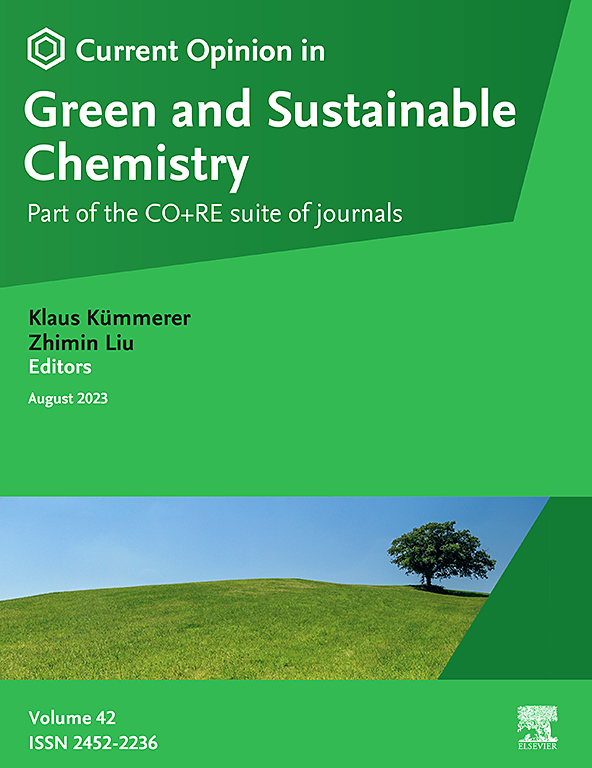The importance of mechanistic studies in the development of cold plasma-based degradation of persistent organic pollutants in water
IF 9.4
2区 化学
Q1 CHEMISTRY, MULTIDISCIPLINARY
Current Opinion in Green and Sustainable Chemistry
Pub Date : 2025-01-21
DOI:10.1016/j.cogsc.2025.100999
引用次数: 0
Abstract
An overview is given of major recent advancements in cold plasma-based water treatment, with specific focus on the degradation mechanisms of organic pollutants. Mechanistic insight is indeed a powerful tool for process optimization considering the treatment duration, its products, and energy costs as it provides guidelines for the design of optimized reactors and the selection of best experimental conditions. The cases considered emphasize the importance of matching the plasma composition in terms of reactive species with the reactivity of the target pollutant(s), and of identifying and understanding the reciprocal effects of different pollutants as well as those of complex aqueous matrices. Harnessing the chemistry activated by the plasma to achieve the desired goal is the key to treatment success. A general strategy is outlined for designing the best plasma experimental set-up and for predicting possible byproducts.
冷等离子体降解水中持久性有机污染物机理研究的重要性
综述了近年来冷等离子体水处理的主要进展,重点介绍了有机污染物的降解机制。考虑到处理时间、产物和能源成本,机械洞察确实是过程优化的有力工具,因为它为优化反应器的设计和最佳实验条件的选择提供了指导。所考虑的案例强调了在反应物质方面使等离子体组成与目标污染物的反应性相匹配的重要性,以及识别和理解不同污染物以及复杂水性基质的相互作用的重要性。利用等离子体激活的化学物质来达到预期的目标是治疗成功的关键。概述了设计最佳等离子体实验装置和预测可能的副产物的一般策略。
本文章由计算机程序翻译,如有差异,请以英文原文为准。
求助全文
约1分钟内获得全文
求助全文
来源期刊

Current Opinion in Green and Sustainable Chemistry
Chemical Engineering-Catalysis
CiteScore
16.00
自引率
2.20%
发文量
140
审稿时长
103 days
期刊介绍:
The Current Opinion journals address the challenge specialists face in keeping up with the expanding information in their fields. In Current Opinion in Green and Sustainable Chemistry, experts present views on recent advances in a clear and readable form. The journal also provides evaluations of the most noteworthy papers, annotated by experts, from the extensive pool of original publications in Green and Sustainable Chemistry.
 求助内容:
求助内容: 应助结果提醒方式:
应助结果提醒方式:


